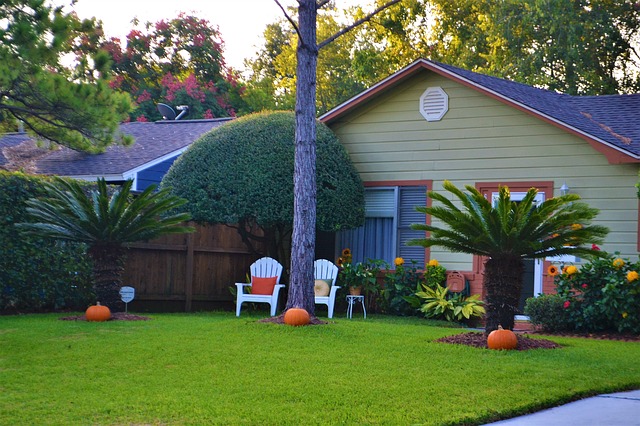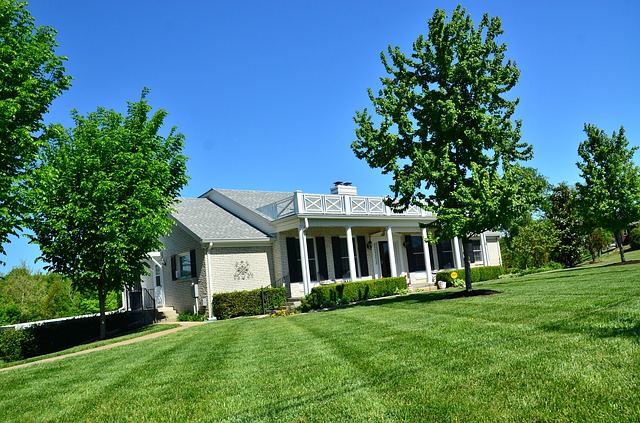Tips to Keep Your Grass Green and Healthy
When you’re lucky enough to live in or own a vacation home on the beach, it’s usually nothing but pure paradise … except for when it comes to maintaining your property. Like any home, a beach house has its own pleasures and challenges when it comes to upkeep and maintenance.
Sometimes, your lawn needs are obvious, and other times, they are out of sight and out of mind. Read along and we’ll share 6 basic lawn care tips that any beach house owner needs to know to keep their little slice of heaven looking tip-top.
-
Grass Type
One of the most important aspects of caring for your beach house lawn is by ensuring that you have the right type of grass for your climate and area. If you have a beach home in a tropical climate, consider heat-resistant grasses like St. Augustine, Bahia grass and Bermuda grass.
If your beach home is in the northeast, consider ryegrass, fescue or bluegrass. Seashore paspalum is an excellent choice for beach homes in hot, humid areas that are heavily affected by saltwater, and may also be a great choice for your beachy abode.

-
Mowing and Lawn Edging
Once you have determined the best type of grass for your beach home, maintaining that grass is going to be essential. Professional landscapers can help you create a schedule for mowing and edging to ensure that your grass gets the best care.
A pro can also help you decide the best height of grass for your lawn, and give your lawn a crisp, buttoned-up look with expert lawn edging. If your beach home is a vacation home, be sure to schedule lawn maintenance even while you’re away so your retreat always looks cared for and lived in.
-
Weeding
It’s a fact; weeds love to creep in and ruin the finished look of your lawn. If you choose to use seashore paspalum grass on your lawn, you’ll be pleased to know that weeds are easy to keep at bay.
One of the more unusual properties of this grass is that salt surprisingly acts as a natural weed killer on seashore paspalum, for a non-toxic lawn care option that’s safe for children and pets.
If you don’t choose a specialty weed-resistant grass for your beach home, be sure to add weeding to your lawn care to-do list. Some beach house weeds are more than unsightly, they’re a painful nuisance.
One type of weed that beach homeowners will want to avoid is sand spurs; those prickly little burs that get stuck in your socks and the heel of your foot. Fortunately, sand spurs don’t like well-maintained lawns, so the first line of defence against them simply cares.
-
Watering
Do you really need to water your lawn all the time? Yes! Irrigation is key for lush looking lawns, but each homeowner needs to know the when, why and how for their region.
Whether you have a sprinkler system installed, or just need to spray a small patch of green yourself, making sure your lawn is adequately watered is essential for its overall care.
Some cities have lawn watering schedules that homeowners must abide by for water conservation (such as 8 minutes a day, 3 days a week), so look for a sprinkler system that you can easily set a timer on. Regulations will vary from city to city, so check with your local laws to make sure you’re in compliance.
-
Fertilization
Many homeowners think that fertilizing their lawns is essential, and it is! Without the proper nutrients that it needs, your grass is essentially starving.
Lawns need nitrogen and a host of other elements to keep them healthy and green. Fertilizing the grass on your beach house can be tricky though; due to runoff, fertilized lawns have been a culprit in cases of algae blooms and even red tide in coastal areas.
Hiring a certified lawn service company will take all the guesswork out for you out of figuring out the best methods and times to fertilize your lawn, but if you want to try and take a whack at it yourself consider these tips.
- Take a soil sample: Finding out what your soil is made of is the first step to understanding what it needs. It may be tempting to just grab the first fertilizer you see at the local hardware store and spread it around, but that could be a mistake. Test your soil sample to see if your soil is low in phosphorus or highly acidic, and then purchase the type of fertilizer to best accommodate your soil.
- Watch the weather: Is a storm on its way? Don’t bother fertilizing that day. The best way to avoid runoff and losing all your fertilizer into the ocean or the bay is waiting to fertilize on a nice sunny day.
- Timing: Be sure to consider the time of year to fertilize based on your region and the type of grass in your lawn. If your grass has gone dormant, then you’ll be wasting time, money and energy on fertilizing.
-
Pesticides
Pest control is another essential element to ensuring a healthy landscape for your beach property. No one wants bugs in their home, and one of the first steps at controlling pests is keeping them out of your lawn. Not only do pests leave unsightly traces, but insects and critters can damage your sod and grass as well.
There are a variety of organic options to choose from that are safe for pets and children, so do your research and find the best option for your needs.
Carefully read the label of whichever pesticide you choose to ensure you aren’t using too much product, which could have the opposite effect and burn or kill your grass. Anthills are out of sight and out of mind when you choose the right pesticide for your coastal lawn.
Keep these tips in mind when you are considering lawn care for your beach home, and you’ll be sure to have a gorgeous green oasis to always come home to!

